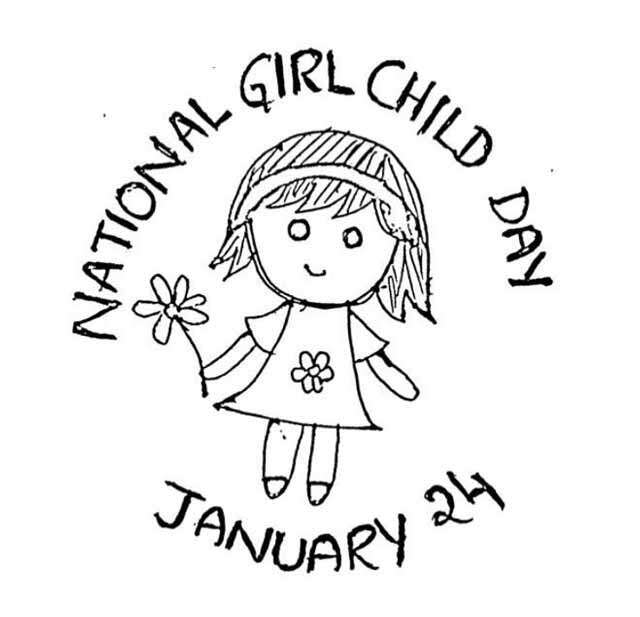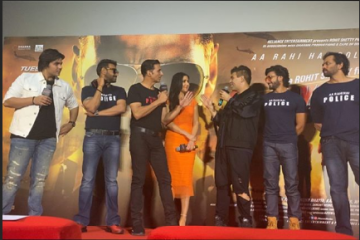
In 2008, the Ministry of girls and Child Development and therefore the Government of India marked January 24 to be celebrated as National Girl Child Day on January 24. This nationally observed day was initiated to boost awareness about the inequality that also persists within the country. Girls face challenges, sometimes even before they’re born. From female foeticide, infanticide, discrimination in education, sexual assault , child marriage, lack of reproductive care and equal opportunities, girls and young women within the country have had to affect tough times.
However, only one day isn’t enough to spread awareness and tackle these issues, says Aparajita Gogoi with HerStory, executive of Centre for Catalyzing Change (C3), a corporation focused on improving the condition of women and ladies within the country. Efforts must be taken a day to interrupt the cycle of oppression that a lot of girls still face within the country. And work has got to be done a day to make sure girls receive the resources that they deserve and achieve their full potential.
Helping girls achieve their full potential
For over three decades, C3 has been working within the country to “mobilize, equip, educate and empower girls and ladies to satisfy their full potential.” Beginning in 1987, at the core of its work is that the belief that gender equality is important for development and democracy.
She adds, “We specifically specialise in girls completing 12 years of education a minimum of and preventing child marriage. Then when the girl reaches her reproductive age, we work around ensuring that ladies and girls have access to information on birth control , contraception, and quality healthcare services. We attempt to work round the whole life cycle of a woman .”
How does this translate to on groundwork?
Modules and curriculums are designed to be delivered to women and ladies in areas where intervention is important . C3 also works in partnership with governments to style and deliver scaled-up programs. Its in-school adolescent education program, Udaan is now delivered at every government school in Jharkhand.
“We have two sorts of programs. One is delivering these programs at scale. So we run through schools, Anganwadi centers, where we will reach maximum girls,” she explains. It leverages the general public system, the govt schools, and collaborates with the govt during this method.
“Another method is to curate small programs, like offering scholarships to women , where they will learn to skill or take karate classes. Or digital literacy courses where 3000-10,000 girls are learning digital skills. this is often the type of labor where we still specialise in the girl as a private .” The organization features a small grants program called Uniti, which is predicated on the philosophy of small philanthropy that has helped over 2000 girls. Other programs include Pahel, which empowers women politically; Youth Life, its digital education program for adolescents; and Do Kadam, an intervention program in Bihar for preventing violence .
The organization’s work has helped over 1.9 million girls within the last 30 years.
The changemakers
Several staff, community members, peer educators, and volunteers are involved in bringing these modules to the women . The organization which predominantly works in rural areas features a presence in five states within the country. Aparajita believes that it’s these on-ground changemakers and their work must “acknowledged, recognized and supported.” In Bilaspur, Chattisgarh, community members provided C3 with free space to run its digital and financial literacy classes for adolescent girls. In Jharkhand, Suparna Chatterjee, a life skills teacher with C3, helped a woman continue her education after several teasing incidents made her consider throwing in the towel . Poonam Guria, an educator at Kasturba Gandhi Balika Vidyalaya (KGBV) in Ranchi features a secret box up her class where girls can ask any question. The questions range from relationship issues with parents to questions around sexuality, which she discusses openly in school . Her question box now gets 50 questions a day .
Future plans
Aparajita outlines three priorities that C3 feels to carry the key to its endeavors to assist girls and young women. “One is to scale the model. we’ve added digital and financial literacy in some geographies. because the needs of children change rapidly, the question is how can we keep these models relevant” “The second is how can we take these cost-effective models to other states. The third is, how can we share what we are learning about programming to people within the sector in order that more people can work for ladies and girls,” she adds.
This artical taken refrence from yourstory


















